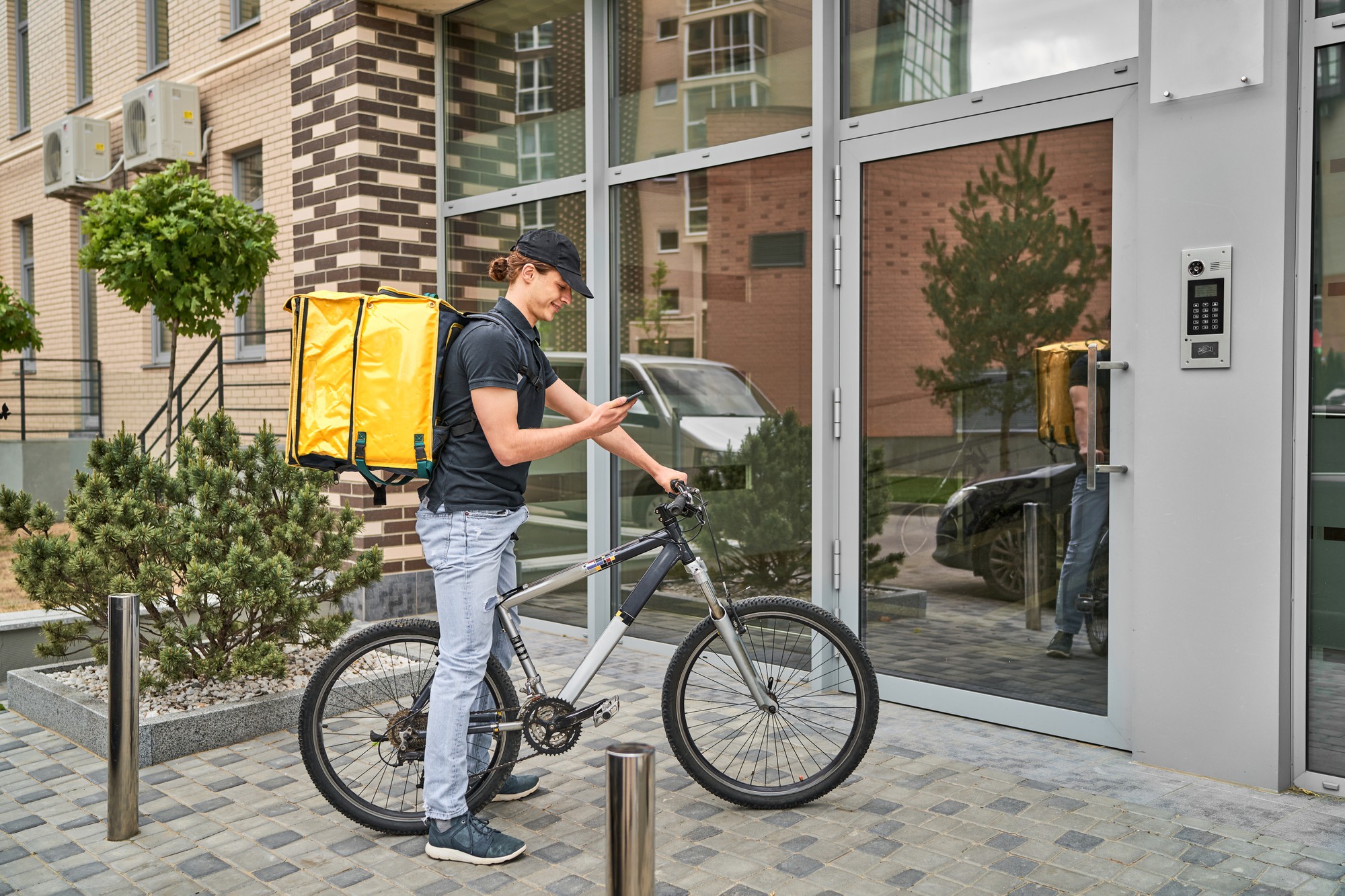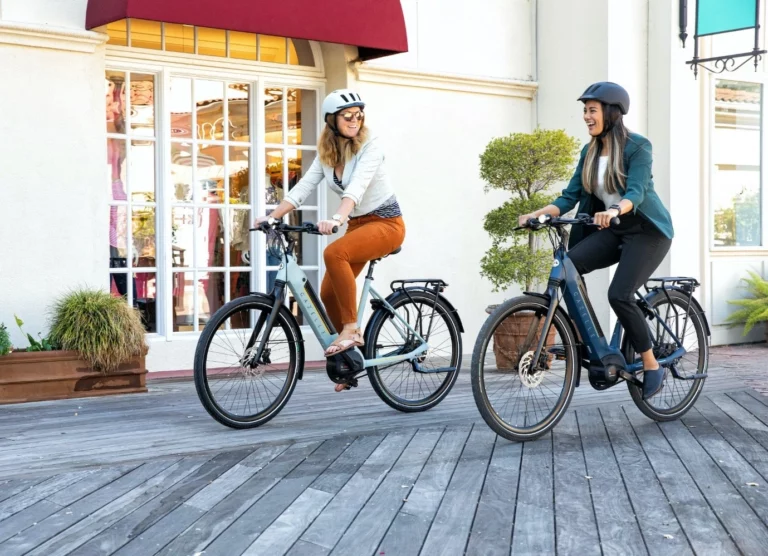E-Bikes And The Gig Economy: Opportunities For Freelance Delivery Workers
The gig economy is a rapidly growing sector that is transforming the way people work. With the rise of online platforms such as Uber, Lyft, and Deliveroo, more and more people are turning to freelance work to supplement their income or make a living. However, gig work can be challenging, with long hours, low pay, and little job security. Electric-bikes are transforming the gig economy for delivery workers, offering opportunities for economic empowerment, improved health, and greater sustainability. In this article, we will explore the benefits of electric-bikes for gig workers and the challenges they face in adopting this technology.

The Rise of the Gig Economy
The gig economy is a broad term that refers to a range of freelance work, including ride-hailing, food delivery, and other on-demand services. The gig economy has grown rapidly in recent years, with an estimated 1 in 10 workers in the US now working in the gig economy. Many gig workers are attracted to the flexibility and autonomy that freelance work provides, as well as the opportunity to earn extra income. However, gig work can also be challenging, with long hours, low pay, and little job security.
The Benefits of E-bikes for Gig Workers
Electric-bikes are a type of bicycle that is equipped with an electric motor, which provides assistance when pedaling. E-bikes are becoming increasingly popular for delivery work, as they offer a range of benefits for gig workers. For example, electric-bikes are less expensive to operate than cars or motorbikes, reducing the cost of transportation for gig workers. Electronic-bikes are also more environmentally friendly than cars or motorbikes, as they produce fewer emissions. Additionally, e-bikes are easier to park and navigate in urban areas than cars or motorbikes, which can be an advantage for delivery work.
E-bikes and Delivery Work
Delivery work is a common type of gig work, with many people using platforms such as Deliveroo, Uber Eats, and Postmates to earn money. Delivery work can be challenging, with long hours and low pay, but electronic-bikes are transforming the delivery sector by providing new opportunities for gig workers. E-bikes are particularly well-suited to delivery work, as they can travel quickly through urban areas and are easy to park. E-bikes also reduce the cost of transportation for gig workers, making it easier to earn a living.

Overcoming Barriers to E-bike Adoption
Despite the many benefits of electronic-bikes for gig workers, there are still some barriers to adoption that must be overcome. One of the biggest barriers is the cost of e-bikes and equipment. E-bikes can be expensive to purchase, and gig workers may not have the capital to invest in this technology. Additionally, access to charging infrastructure can be a challenge, as e-bikes require regular charging to operate. Safety concerns and regulatory issues are also potential barriers to adoption, as electronic-bikes are still relatively new technology and may not be covered by existing regulations.
E-bikes and Health Benefits for Gig Workers
Gig work can be sedentary, with long hours spent sitting in a car or on a motorbike. This can lead to a range of health problems, including obesity, heart disease, and diabetes. Electric-bikes offer an opportunity for gig workers to get exercise and fresh air, which can improve their physical and mental health. Electric-bikes can also reduce stress and anxiety, which are common issues among gig workers who face long hours and tight deadlines. Using e-bikes for delivery work can help gig workers stay active and improve their overall well-being.
E-bikes and Sustainable Delivery
Sustainability is becoming an increasingly important issue in the gig economy, with consumers and regulators demanding more sustainable practices from companies. E-bikes offer a sustainable alternative to traditional delivery methods, such as cars and motorbikes, which produce emissions and contribute to air pollution. Using electric-bikes for delivery work can reduce the carbon footprint of gig workers and contribute to a more sustainable future.
Opportunities for Economic Empowerment
E-bikes also offer opportunities for economic empowerment for gig workers, particularly those in low-income communities. E-bikes are less expensive to operate than cars or motorbikes, reducing the cost of transportation for gig workers. This can make it easier for gig workers to earn a living and provide for their families. Additionally, e-bikes can be used for a range of other purposes, such as commuting to work or running errands, providing gig workers with more opportunities for economic empowerment.
Safety Considerations
While e-bikes offer many benefits for gig workers, there are also some safety considerations to keep in mind. E-bikes can travel at higher speeds than traditional bicycles, which can increase the risk of accidents. Delivery workers must also navigate traffic and congested urban areas, which can be challenging. It’s important for gig workers to receive proper training on how to operate e-bikes safely and to wear appropriate safety gear, such as helmets.

Regulatory Framework
As electric-bikes become more popular in the gig economy, there is a need for a clear regulatory framework to ensure their safe operation. This includes rules around maximum speeds, helmet requirements, and licensing requirements for riders. Governments and regulatory bodies must work together with industry stakeholders to develop effective policies that balance the benefits of e-bikes with the need for safety and accountability.
Technology and Innovation
The growth of e-bikes in the gig economy is also driving innovation in technology and infrastructure. For example, some companies are developing new charging solutions for e-bikes, such as solar-powered charging stations. Others are experimenting with new types of electric-bikes that are more efficient and can travel longer distances. As e-bikes become more widely used in the gig economy, we can expect to see continued innovation in this space.
Challenges and Opportunities for the Industry
The growth of e-bikes in the gig economy also presents both challenges and opportunities for the industry as a whole. For example, some traditional courier and delivery companies may be slow to adopt e-bikes due to the costs of transitioning their fleets. On the other hand, smaller companies and startups may be more agile and able to take advantage of the benefits of e-bikes more quickly. Additionally, electric-bikes could open up new markets and delivery opportunities, such as same-day or on-demand delivery services.
Looking to the Future
As e-bikes continue to gain popularity in the gig economy, it’s clear that they will play an increasingly important role in delivery and courier services. However, there are still many questions to be answered about the long-term impact of e-bikes on the industry and society as a whole. Will e-bikes lead to a more sustainable and equitable future, or will they simply perpetuate existing inequalities and power structures? Only time will tell, but one thing is certain: electric-bikes are here to stay.
Success Stories
There are already many success stories of gig workers who have benefited from using e-bikes for their delivery work. For example, in New York City, many food delivery workers have switched to e-bikes to reduce their transportation costs and increase their earning potential. Some gig workers have also reported feeling more energized and healthy since making the switch to electric-bikes. Sharing these success stories can help to inspire other gig workers to make the transition to e-bikes.
Partnerships and Collaborations
To fully realize the potential of e-bikes in the gig economy, it’s important for different stakeholders to work together. This includes gig workers, companies, governments, and non-profit organizations. Partnerships and collaborations can help to address some of the challenges and barriers to adoption, such as access to charging infrastructure and affordable e-bikes. Working together, we can build a more sustainable and equitable gig economy.
Future Research Directions
As e-bikes become more widely used in the gig economy, there is also a need for more research to better understand their impact. For example, what are the long-term health benefits of using electric-bikes for delivery work? How can we design better e-bikes that meet the needs of gig workers? What are the environmental impacts of using e-bikes for delivery services? Addressing these research questions can help to guide future policy and investment decisions related to electric-bikes and the gig economy.
E-bikes and Urban Planning
The growth of e-bikes in the gig economy also has implications for urban planning and design. For example, as more gig workers switch to e-bikes, there may be a need for more bike lanes and infrastructure to support their safe operation. Additionally, e-bikes could help to reduce traffic congestion and air pollution in urban areas. As we design our cities and transportation systems, it’s important to consider the potential of e-bikes and other sustainable modes of transportation.
Conclusion
In conclusion, e-bikes are transforming the gig economy by providing new opportunities for delivery workers. E-bikes offer a range of benefits, including reduced transportation costs, improved health, and greater sustainability. However, there are still some barriers to adoption that must be overcome, including the cost of e-bikes and access to charging infrastructure. With the right policies and support, e-bikes have the potential to empower gig workers and contribute to a more sustainable and equitable future.






